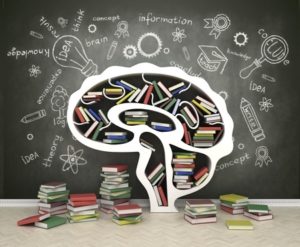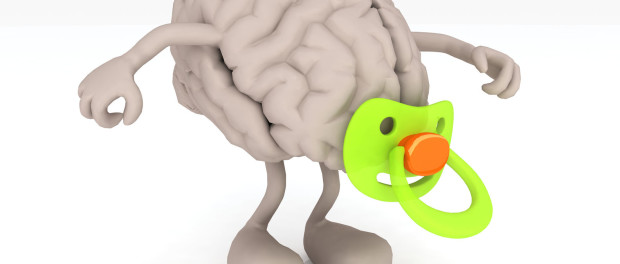 Teaching reading and literacy to young children works best when using brain-based strategies. The brain loves to learn patterns and link them to things that are real or sensory experiences that are interesting or exciting. This understanding helps teachers introduce concepts of phonics and decoding in ways that their brains will soak up like a sponge soaks up water. Brain-based strategies not only improve the way children learn to read, but they also improve overall thinking including logic, reasoning and executive function. These brain-based strategies so effective that are tools used by Educational Therapists like Dr. Kathy A. Thomas of Orchard Human Services.
This understanding translates into practical and fun activities in the classroom. Teachers can create lesson plans that utilize rich colors, stories, textures, and even sounds to support the learning process. For example, teachers can introduce the sound "b" with the phrase "Big Blue Bear" and the children can run around the room making growing bear sounds while repeating "buh is for Big Blue Bear". In the future, the children will remember the sensory and kinesthetic rich experience of running around the room as bears while repeating the sound and words.
Over time, the brain can create stable and reproducible concepts of phonics and decoding that support literacy. Home-school educators can similarly introduce this type of learning while at home or about in the community. Imagine sending a group of children into the park with the instructions to find things that begin with the sound "b". They might find butterflies, basketballs, bugs, buttercup flowers, and even bags of trash in the garbage bin.
Sensory and experiential learning is the way that brains learn best. Bring on the role playing and social interactive learning in order to increase each child's capacity to learn, recall, and generalize literacy skills with every bit of text they encounter in their lives. Homeschool, private, and public school educators can ease their burden by using some high quality and creative lessons plans and activities that are available on popular websites like Teachers Pay Teachers. No matter where you find your resources, even if you make them from scratch, be sure to make each lesson colorful, interactive, and sensory and kinesthetically stimulating.
Teaching reading and literacy to young children works best when using brain-based strategies. The brain loves to learn patterns and link them to things that are real or sensory experiences that are interesting or exciting. This understanding helps teachers introduce concepts of phonics and decoding in ways that their brains will soak up like a sponge soaks up water. Brain-based strategies not only improve the way children learn to read, but they also improve overall thinking including logic, reasoning and executive function. These brain-based strategies so effective that are tools used by Educational Therapists like Dr. Kathy A. Thomas of Orchard Human Services.
This understanding translates into practical and fun activities in the classroom. Teachers can create lesson plans that utilize rich colors, stories, textures, and even sounds to support the learning process. For example, teachers can introduce the sound "b" with the phrase "Big Blue Bear" and the children can run around the room making growing bear sounds while repeating "buh is for Big Blue Bear". In the future, the children will remember the sensory and kinesthetic rich experience of running around the room as bears while repeating the sound and words.
Over time, the brain can create stable and reproducible concepts of phonics and decoding that support literacy. Home-school educators can similarly introduce this type of learning while at home or about in the community. Imagine sending a group of children into the park with the instructions to find things that begin with the sound "b". They might find butterflies, basketballs, bugs, buttercup flowers, and even bags of trash in the garbage bin.
Sensory and experiential learning is the way that brains learn best. Bring on the role playing and social interactive learning in order to increase each child's capacity to learn, recall, and generalize literacy skills with every bit of text they encounter in their lives. Homeschool, private, and public school educators can ease their burden by using some high quality and creative lessons plans and activities that are available on popular websites like Teachers Pay Teachers. No matter where you find your resources, even if you make them from scratch, be sure to make each lesson colorful, interactive, and sensory and kinesthetically stimulating.


Darleen Claire Wodzenski, MS ESE, MA CMHC, PhD Psychology of Orchard Human Services, Inc. and PNE Institute, LLC.
If you need more information about ways to use brain-based literacy instruction to help children with exceptionalities and learning challenges, you can contact Dr. Darleen Claire Wodzenski of Orchard Human Services at 770-686-0894 or email her at D@OrchardHumanServices.org. She provides direct services for mental health and education intervention around the Metro Atlanta are including Alpharetta, College Park, Cumberland, Hiram, and Marietta. Counseling and therapy are available for infants, children, and families; educational intervention and advocacy is available including support for IEP and Section 504 planning.



 Teaching reading and literacy to young children works best when using brain-based strategies. The brain loves to learn patterns and link them to things that are real or sensory experiences that are interesting or exciting. This understanding helps teachers introduce concepts of phonics and decoding in ways that their brains will soak up like a sponge soaks up water. Brain-based strategies not only improve the way children learn to read, but they also improve overall thinking including logic, reasoning and executive function. These brain-based strategies so effective that are tools used by
Teaching reading and literacy to young children works best when using brain-based strategies. The brain loves to learn patterns and link them to things that are real or sensory experiences that are interesting or exciting. This understanding helps teachers introduce concepts of phonics and decoding in ways that their brains will soak up like a sponge soaks up water. Brain-based strategies not only improve the way children learn to read, but they also improve overall thinking including logic, reasoning and executive function. These brain-based strategies so effective that are tools used by 





